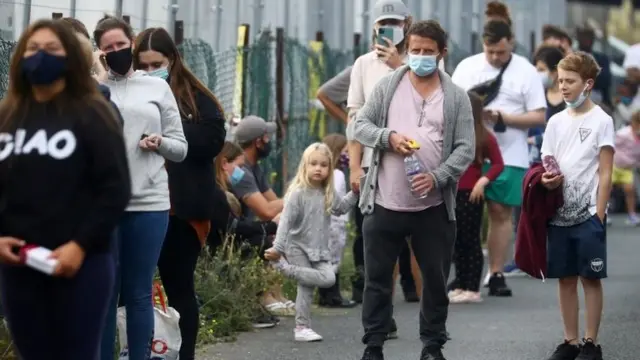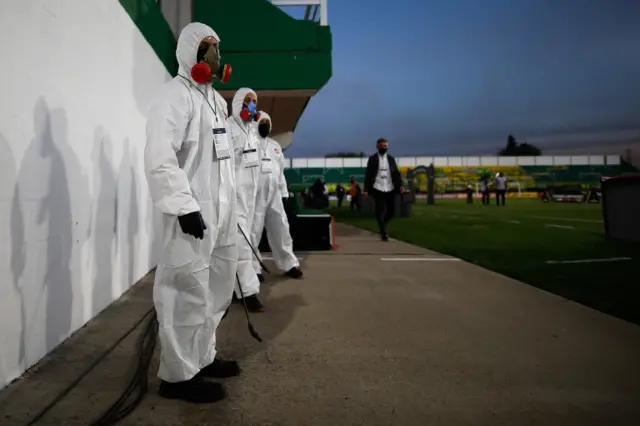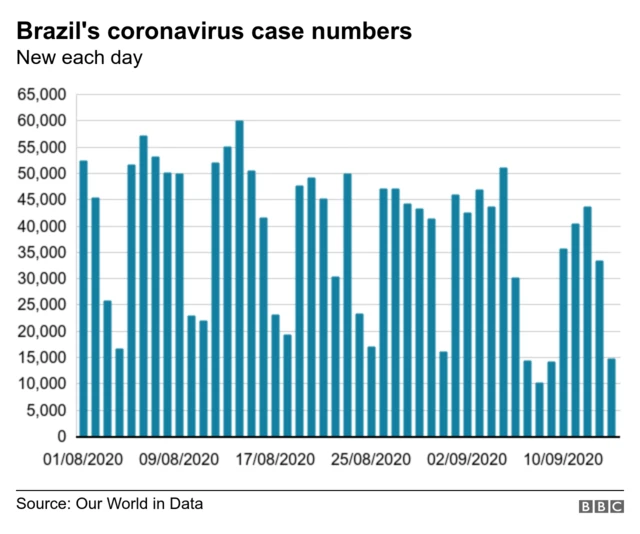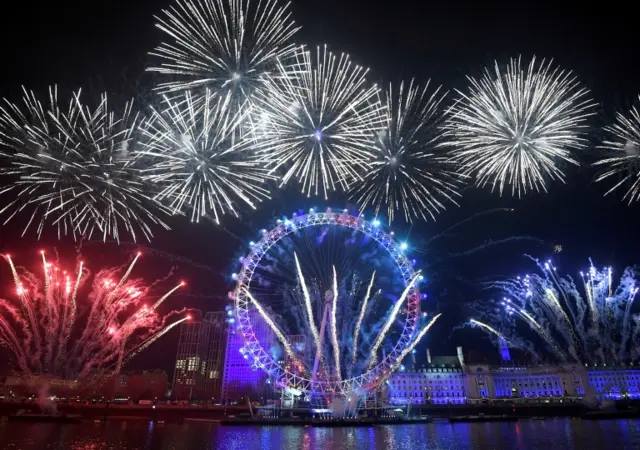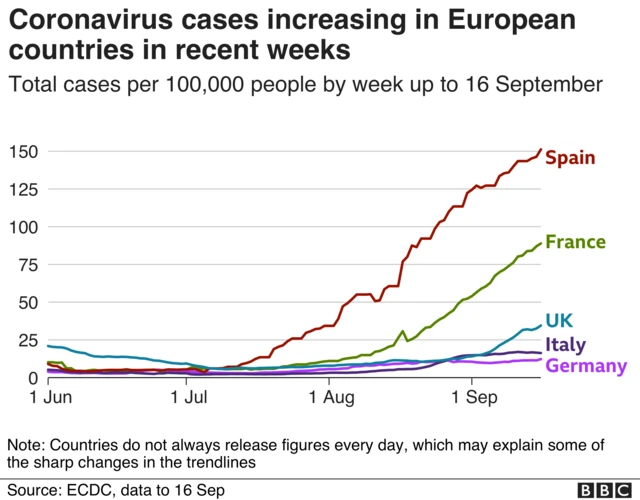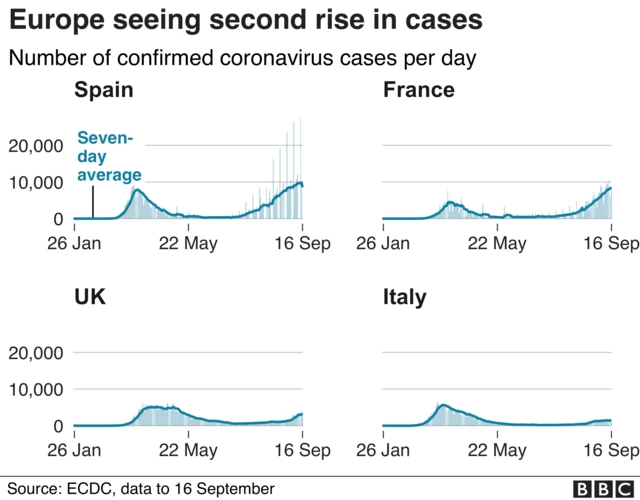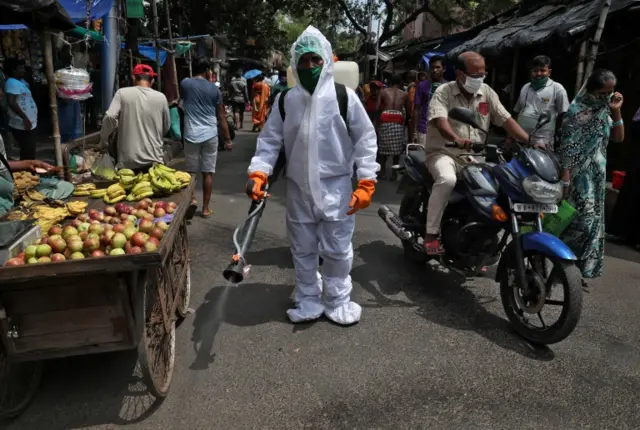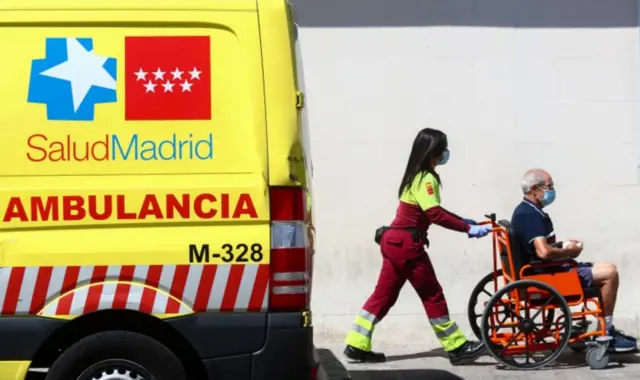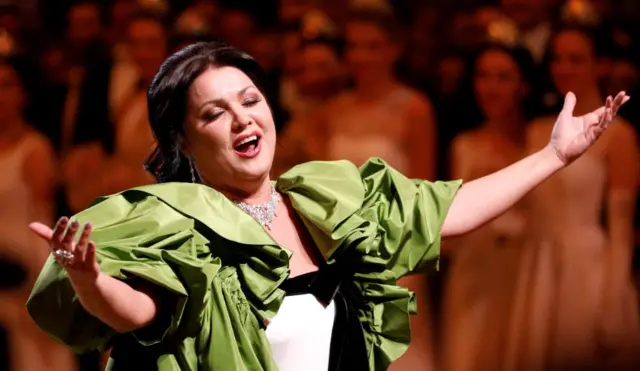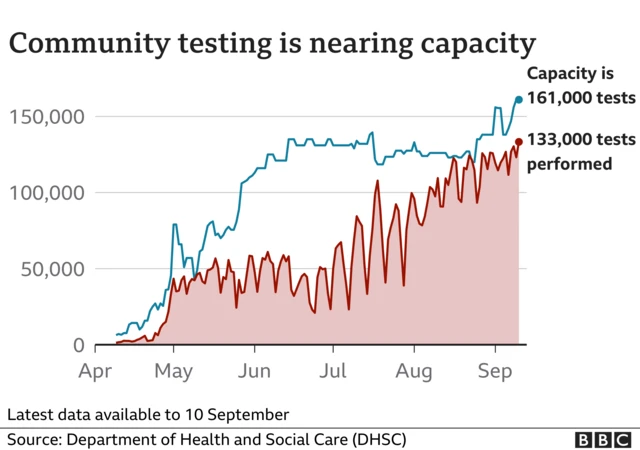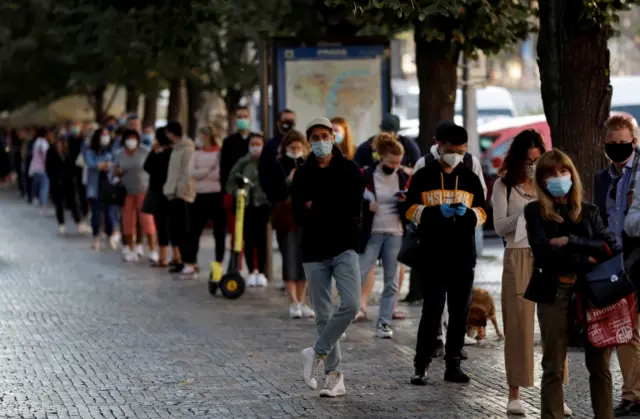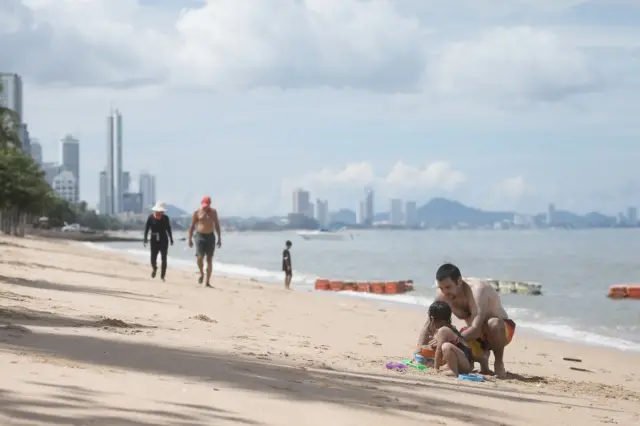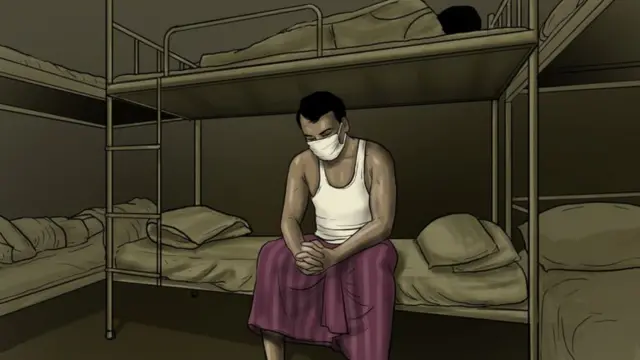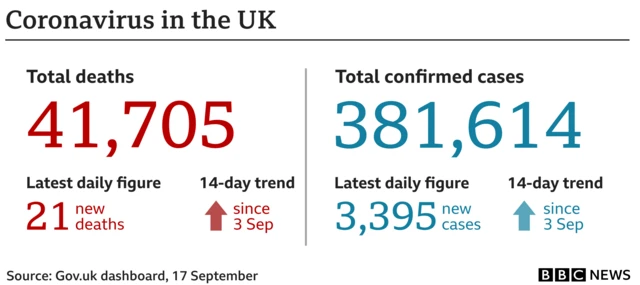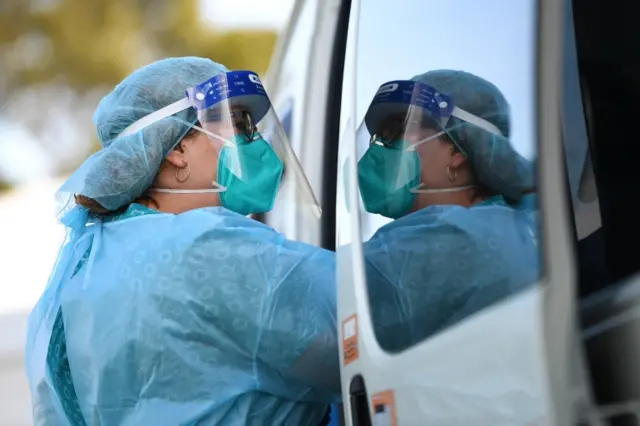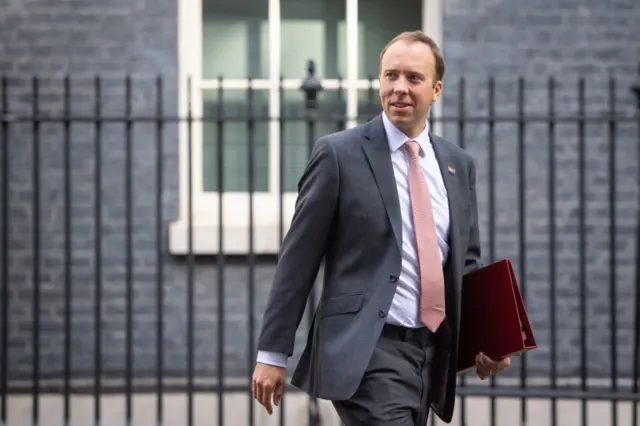Analysis: A small problem can quickly become a big onepublished at 12:03 British Summer Time 18 September 2020
 James Gallagher
James Gallagher
Health and science correspondent, BBC News
Basic maths shows us how quickly coronavirus cases can, theoretically, soar.
Around 4,000 infections a day, doubling every eight days, would be nearly 130,000 new daily cases by the end of October.
That is not guaranteed to happen but it gives a sense of how quickly a small problem can become a big one.
And a change in our behaviour, the “rule of six” or restrictions like those in north-east England could improve the situation.
The point of a national “circuit break” would be to achieve a controlled drop in the levels of coronavirus without needing a full lockdown.
This does two things - obviously it helps avoid having very high levels of the virus that could overwhelm hospitals.
But it also gives us more options. Any contact tracing programme or system of local lockdowns is far easier to implement when levels of the virus are low.
The higher the number of cases, the fewer targeted measures the government has to use.
The problem is once the circuit break is over, cases would begin to rise again and it may take multiple circuit breaks to get us through winter.
It is only September and Spring is still a very long way away.
